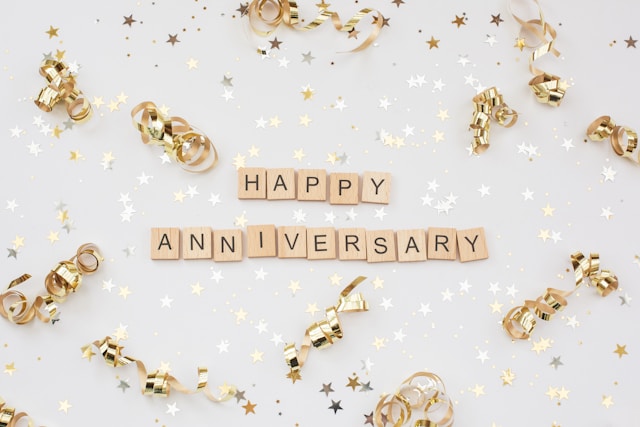February is the month for celebrating love, which is a worthy recognition. However, I think it’s even more critical for those healing from betrayal trauma to celebrate self-love. After all, it takes some amount of self-love to pursue healing, regardless of the recovery status of the addict. I think self-love can make a difference in how one heals from betrayal trauma. So enjoy your roses, chocolates, or whatever speaks “Valentines” to you, but please take time to appreciate and love yourself.
What comes to mind when you think of self-love? One may think of a vain person, you know, the type who always has a way of letting you know how great they are, but of course, “they don’t mean to brag.” Most people don’t look in the mirror all day long, repeating “I love myself” out loud, but ironically, that may be the very thing some of us need to do at different stages of our healing journey. Let me state I am not talking about an anti-Valentine approach to this holiday. No one needs to sit in front of the television with a tub of ice cream or a bottle of wine, hating romance, men or women. I am talking about celebrating love for yourself on Valentine’s Day and afterward.
Valentine’s Day is a day of love, not necessarily “romantic love,” which is why you see Valentine’s Day cards in stores for children, teachers, parents, grandparents, etc. Most of us remember exchanging Valentine’s Day cards at school parties; it wasn’t about “romantic” love at age 5; it doesn’t have to be now.
For some partners of sex addicts, Valentine’s Day can be a day of sadness, depression, confusion, and anger, which I believe is normal. It’s hard to feel loved if the person you trusted the most betrayed you. The betrayal might make you question if your partner loves you, if you are lovable, or if you will feel love for the addict or anyone else ever again. I reflected on past Valentine’s Days, questioning if my husband meant any of his Valentine’s gestures or if he was going through the motions.
It’s hard to put on a fake smile for a day while healing from betrayal. Thankfully, my husband always acknowledges Valentine’s Day and asks me how I wish to celebrate it out of respect for where I am on my healing journey. Sometimes I requested not to go out because I didn’t feel like being out in public on that particular day; I didn’t want to feel phony. At the beginning of my journey, my husband acknowledged he knew his past actions might not make me feel like celebrating Valentine’s Day. I can’t tell you the last time I bought my husband a Valentine’s Day card because I haven’t found one that appropriately expresses my feelings. I keep saying someone needs to sell Valentine’s cards that tell it like it is, “Happy Valentine’s Day, we are getting better, and I still have hope for our future; I appreciate all of your work to stay sober and work on our relationship.”
We talk about self-care in the support groups I attend but not as much about self-love. Ironically, self-care starts with self-love. How you feel about yourself will determine what you think and tell yourself who you are, what you want, and what you deserve. If you don’t love yourself, it’s hard to see the value in healing from betrayal trauma. Self-Love is the backbone of encouraging and empowering yourself in different aspects of your life, not just betrayal trauma healing. It starts by asking yourself two questions: “How do I plan to show myself love today?” and “What do I love about myself?” I recently came across this self-love definition: regard for one’s well-being and happiness.
Self-Love doesn’t require “perfection” as a pre-requisite.
I once facilitated a session on self-love for partners, asking them to repeat positive affirmations to themselves while looking at a mirror. I was amazed by how many people said they were uncomfortable with the activity yet recognized the potential benefits of doing it repeatedly. Now, I don’t expect anyone to feel like they love every aspect of themselves. I struggle with my weight, I love sweets, and I can be reactionary and a little too loud sometimes. Yet, I accept these flaws as things I want to work on continuously, but I am still “loveable.” Even if I woke up tomorrow skinnier, less reactive with a constant calm voice, I wouldn’t love myself anymore, and neither would God. The challenge is to believe it when I get on the scale, eat too many cupcakes, speak loudly in reaction, or other defects that contribute to me being a flawed individual who also happens to be a betrayal trauma survivor. Have I done some things in the past I regret? Yes. Are there some shameful memories buried? Yes, but I am still worthy of loving myself regardless.
Self-Love is our responsibility.
Self-Love is your right simply because you are on the planet. It comes down to knowing what you appreciate about yourself. It’s okay to tell yourself, “I am kind,” “I am good at my job” I am a good daughter/son,” “I listen well,” “I am empathic,” “I am attractive,” “I am intelligent” “I am thoughtful”; you get the picture. Practicing self-love may also require creating affirmations, journaling, or quiet time to realize what you love about yourself. No one will do this for you, and it should be consistent. You are worth the energy and effort it takes to practice self-love.
How does this play out when it comes to healing from my partner’s betrayals?
Self-Love can help you heal from betrayal trauma in many ways. After all, how can you make good boundaries if you don’t love yourself enough to know how you want your partner to treat you? How can you know what you desire from your relationship, whether with the addict or someone else? Self-Love can be the backbone of boundaries you create.
I’ve often used “I Love Myself Enough to ____________________________________________” when considering boundaries for my healing journey. Please remember you can adjust boundaries when necessary. Consider filling out the blanks with your established boundaries or the ones you are currently creating.
Perhaps, the sentences listed below, which fit in the “I Love Myself” statements, may apply to your situation:
- Not to stay in a relationship with someone who doesn’t recognize their addiction and refuses to change their behavior.
- Not to engage in conversations that are only escalating without a peaceful resolution.
- Create boundaries that make me feel safe and respected.
- Speak up when I feel disrespected.
- Get an STD/AIDS test) since I know my partner cheated on me.
- Have an active role in the finances since I know my partner used our finances to engage in his addiction).
- Seek support in my healing journey.
- Request access to my partner’s phone and laptop.
When I approach specific aspects of my process with the “I Love Myself Enough” statements, my journey doesn’t feel like work or obligation because I operate from a “self-love” perspective. In addition, using the “I Love Myself Enough” statements can help you in other areas of your healing, such as:
- Focus on what you can control.
- Possess better self-esteem
- Speak honestly to the addict, knowing you can’t control their response
- Articulate what you want out of a relationship
- Make yourself a priority
- Continue the healing journey during the challenging stages
- See a mental health professional
- Take some time for yourself to sit quietly or meditate
- Read healing materials
But I want romance; I like Valentine’s Day goodies, and I want my partner to show me love!
There is nothing wrong with wanting the Valentine’s Day spread; if you have it coming your way, enjoy it and allow yourself to stay in the moment. Nor is there anything wrong with wanting to be loved by the addict, but we don’t want “active addiction” to accompany that love. However, your Valentine’s celebration may look different if you are still with your partner and trying to figure things out. You may even consider celebrating what you would like the relationship to be or reflecting on how the relationship has improved. You and your partner can make Valentine’s be what you need it to be for your current relationship.
Self-Love is a mindset that can impact our “self-talk.”
What we think is expressed in how we speak and interact with others, including ourselves. For example, I have often used negative self-talk to motivate myself, but it never worked. So instead, I use self-love to affirm and encourage myself, which is more helpful. For me, practicing “self-love” is a deliberate decision to live in awareness of how I talk to myself, which has made a difference in how I approach many challenges in my life. Let me give you some examples that further explain what I am talking about:
I love myself enough to put healthy food in my body,versus I AM FAT.
I love myself enough to get in touch with my emotions,versus I AM INCAPABLE OF FEELING ANYTHING.
I love myself enough to learn more about sex addiction,versus I AM NOT SMART ENOUGH TO GRASP SEX ADDICTION; I WILL BELIEVE WHAT MY PARTNER TELLS ME.
I love myself enough to have sex with my partner when I am ready,versus I BETTER HAVE SEX WITH MY PARTNER SINCE THAT’S THE ONLY WAY I CAN KEEP THE ADDICT.
I love myself enough to know I didn’t cause my partner’s addiction, versus IF I WERE SEXIER OR PRETTIER, I WOULDN’T BE IN THIS SITUATION
I love myself to seek healing from my partner’s betrayals,versus I WILL SEEK HEALING IF IT SAVES THE RELATIONSHIP.
You are promoting selfishness; God teaches us to be selfless.
I am a Christian, and I agree selfishness can prevent us from loving others. However, there is a difference between selfishly not doing for others when you are able versus those who are not in a place to be selfless towards others. How prepared are you to show love to others selflessly if you don’t love yourself? You can try, but you would serve yourself better and others by addressing your self-love issue first. God wants us to be there for others with a full, healthy tank, not a depleted or resentful one. People who love themselves are more equipped to show love to others. Co-dependents will agree to do something they don’t want to do because they feel they must keep the other person happy or appear agreeable at the cost of their self-love, which can often lead to self-disgust and anger towards oneself. I know I’ve done this! However, when I practice self-love, I am more willing to care for others, and my tank is full. I believe that’s how God wants us to interact with others on his behalf. You know what flight attendants tell us when we are traveling with young children who need us, “put your mask on first before putting your child’s mask on.”
Celebrating self-love on Valentine’s Day doesn’t mean you shouldn’t celebrate Valentine’s Day too. People often think that practicing self-love is something people must do when they don’t have a partner, which is nonsense. One can enjoy Valentine’s Day gifts, meals, or whatever romantic gestures present themselves and still practice self-love. So make room to practice self-love on Valentine’s Day not because you are bitter, not because you feel you must because there is no partner in your life – do it because you are loveable.





You helped me a lot by posting this article and I love what I’m learning.
Thank you for your kind words; hang in there – things do get better. I do want to help people on their healing journeys. If you know anyone else who could benefit from this blog, please tell them about http://www.betrayednotbroken.com; no one should have to heal from this alone.